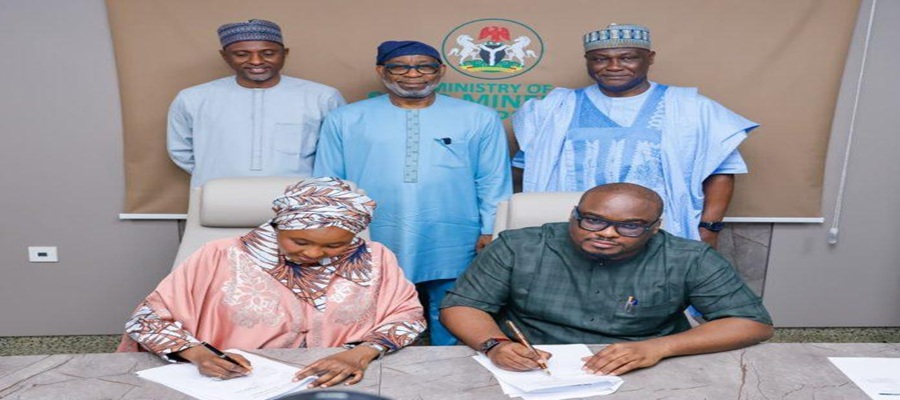News
Ngige, Obiano, Others Battle to Succeed Obi in Anambra State

The long awaited 2013 governorship election in Anambra will take place today in 4,608 polling units in 326 political wards in the 21 local government areas of the state, according to Vanguard Newspapers
Twenty three governorship candidates are vying to be elected to succeed Governor Peter Obi whose tenure would end on March 17, 2014.
Altogether, 1,784,536 registered voters are expected to vote in the election. Figures released by the Independent National Electoral Commission (INEC) showed that 52 percent of the registered voters are between 18 and 35 years; 25 percent in the age bracket of 36-50 years, while those between the ages of 51-69 years constitute 18 percent. Voters above 70 years constitute five percent.
Vanguard Newspapers reported that female registered voters are 900,701, or about 50.5 percent, while their male counterpart account for 49.5 percent.
A coalition of over 400 civil society groups under the umbrella of the Transition Monitoring Group, TMG, has already deployed over 600 election observers to all the 21 local government areas in the state to monitor the election.
To ensure adequate security during the exercise, Mohammed Abubakar, Inspector General of Police (IGP) has appointed Philemon Leha Deputy Inspector General of Police (DIG) nin charge of operations, , a former commissioner of police in the state to take charge, with three other Commissioners of Police that would be posted to the three senatorial zones of the state, to assist him.
The three commissioners of police will also work with deputy commissioners and assistant commissioners of police, in addition to a large number of security operatives that would be assigned to all the polling units.
Abubakar warned during his interaction with Attahiru Jega, INEC Chairman, and candidates and chairmen of the various political parties in Awka on Wednesday that nobody would be allowed to use his police orderly or escort today, adding that any police personnel found flouting the order would be dismissed from the force.
“If anybody breaks the law, we shall break him. If you have no business with the election, please stay in your house. We beg the people of this state to allow peace to reign. Do not take anything like walking stick or umbrella while going to vote because they constitute dangerous weapons. There should also be no fishing anywhere in Anambra State as the Nigerian Navy will not allow anybody on the waters,” he further warned.
With the closure of all Anambra borders from 5pm yesterday to 4 pm tomorrow, the rumoured influx of people suspected to be thugs from the neighbouring states appears to have been taken care of by security operatives. It was also gathered yesterday that security operatives have encircled all the suspected trouble makers who had earlier entered the state and lodging in various hotels in Awka and Onitsha.
As one police officer put it, “these people may have to remain in their hotel rooms throughout the period of this election because they will be fishing in troubled waters if they attempt to leave wherever they are staying now during the period of this election.
According to him, those who brought them into Anambra State may soon realize that they have wasted their resources because they won’t have any opportunity to do any dirty job.
Jega has also said the controversial polling units hitherto located in a thick forest in Oyi Local Government Area were relocated to Nteje also in Oyi, ahead of today’s election, stating that the highest number of the alleged multiple registration during the voters’ registration exercise took place at the forest polling units.
He said: “When we did the voters’ registration in January, we found four polling units located at Oyi. We had to move them to Nteje where people live.’’
Jega said though the final register for the election which was issued to the political parties had minor corrections, the final figure for today’s election would not in any way be flawed as the errors found on the voters register had been corrected.
He assured registered voters that their names would not miss in the register adding, “if you have a voters card and your name is not in the register, it means you are involved in double registration and you will be arrested.”
Source: Vanguard
News
EFCC Arraigns Two FSDH Bank Officials Over $307k, €50k Fraud


EFCC
News
AfDB Supports Francophone Africa Start-ups with €6.5M

The African Development Bank Group last week approved an investment of €6.5 million in the Saviu II fund in order to support technology start-ups through their seed phase and first institutional fundraising, mainly in French-speaking Central and West Africa.

The Bank will invest €4.5 million as equity and €2 million as a first-loss hedging tranche on behalf of the European Commission, under the Boost Africa Programme.
This participation of the Bank Group will enable the Saviu II fund to give priority to companies with a strong technological or digital component.
Saviu II, the second investment vehicle of Saviu Partners, plans to invest between €500,000 and €3 million in about 20 technology or technology-oriented business-to-business start-ups in the seed phase or carrying out first institutional fundraising.
The Saviu II venture capital fund aims to make at least 60% of its commitments in the French-speaking countries of West and Central Africa: Côte d ‘Ivoire, Cameroon, Benin, Senegal, Togo, Burkina Faso and Mali.
The fund can also co-invest in promising technology companies in East Africa that have a strong team and business model, and whose strategy includes entering the market in French-speaking West African countries and establishing a strong presence there.
In addition, the fund will devote a dedicated envelope to pre-seed investments, focusing on minority equity investments, usually in co-investment with studios, incubators or other ecosystem partners.
News
Nigeria Inks $1.3bn MoU with AFC for Alumina Refinery, Mining Push

Nigerian Government has signed a $1.3 billion Memorandum of Understanding (MoU) with Africa Finance Corporation (AFC) via the Solid Minerals Development Fund (SMDF) to fund an alumina refinery, national geoscience mapping, and a strategic investment vehicle for mining growth.

Special Assistant to the Minister of Solid Minerals Development, Segun Tomori, said the refinery will process one million tonnes of bauxite yearly using a modern Bayer process, powered by an on-site gas-fired cogeneration plant.
Minister Dele Alake called it a transformative milestone boosting GDP, aligning with reforms that improve investment climate, regulations, and licensing to attract private capital. He directed agencies to fast-track permits.
The 20-year project at 95% utilization eyes 19 million tonnes total output, $1.2 billion annual GDP addition, $25 billion economic impact, and $8 billion forex earnings, per feasibility studies.
SMDF Executive Secretary Fatima Shinkafi termed it the agency’s biggest funding deal, supporting value-addition policy.
The partnership extends to geoscience mapping for mineral data, de-risking exploration, and a joint vehicle for mining assets.
Permanent Secretary Engr. Farouk Yabo praised the reforms. Shinkafi signed for government; AFC’s Franklin Edochie for the corporation, witnessed by AFC CEO Samaila Zubairu.
Tomori positioned it as Nigeria’s largest private mining investment and FDI magnet.

 E-Financial3 days ago
E-Financial3 days agoIran-Israel-US Conflict and CBN’s FX Gains: A Stress Test for Nigeria’s Monetary Stability

 E-Financial3 days ago
E-Financial3 days agoMutual Benefits Assurance Reaffirms Full Regulatory Compliance, Enhanced Governance

 General News3 days ago
General News3 days agoJAMB Uncovers AI-Driven Fraud Targeting UTME Candidates, Warns Parents

 General News3 days ago
General News3 days agoSERAP Asks FCCPC to Investigate Google, Meta, Others over Alleged Rights Abuses

 Telecom2 days ago
Telecom2 days agoSunil Bharti Mittal Conferred GSMA Lifetime Achievement Award for Transforming Global Telecommunications

 News3 days ago
News3 days agoTeamApt, Awabah Partner to Boost Pension Drive for Nigerians

 News3 days ago
News3 days agoFlashChange CEO, Bidemi Oke, Urges Startups to Build Strong Governance Structures Early

 Telecom2 days ago
Telecom2 days agoWhy Digital Trust Matters: Secure, Responsible AI for African SMEs?


























